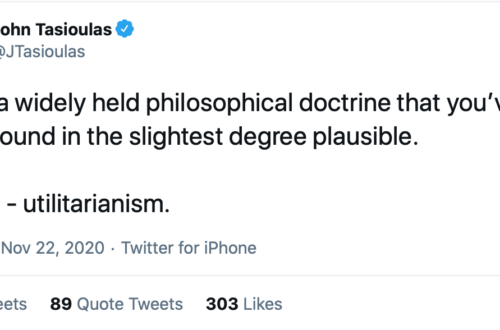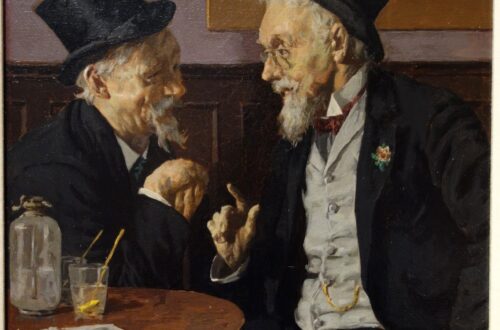What is the purpose of language? Where did it come from? For much of Western history we have vacillated between the theory that meaning is in the object and the theory that meaning is in the mind. Perhaps it was Wittgenstein who turned all this on its head. After making the argument for the former, Wittgenstein changed his mind and thought that the problem would be solved by resisting the temptation to define language ostensibly. Instead, language, and, more basically, meaning, is functional. Language is used in what Wittgenstein called, “language games,” a complete activity, a way of doing things not merely naming things.
Language has since been top of the philosophical to-do list. One view that holds popular sway is that language is not determined by events but determined by the naming of events in discourse, meaning is made, determined by a collection of human subjects or one human subject.
What then is the Christian view of language? First, Christians believe that language serves two purposes, divine and human. God’s purpose, in relation to creation, is authoritative. God commands creation into existence, calls creatures to a purpose, curses creation in its sin, calls a nation, gives the law, speaks condemnation through the prophets, sends his Son, affirms his Son, establishes the church, gives an ethic for the church, tells John about the future and saves sinful men and women, all via language. Language, as far as God is concerned, is distinctly authoritative.
The corresponding Christian view of the purpose of human language is worship, speaking for the glory of God. We are to use language doxastically in loving speech to fellow human beings, in prayer, in praise, in speaking truth, in commanding sinful people to repent, in honoring God in our work, indeed, in all we ever say.
In distinction, unbelieving views of the purpose language always, at root, raise the human to divine levels. It is the human ability to create reality, to determine their own meaning in life. Language is a tool for autonomy. The story of Babel illustrates the point that human beings use language in rebellion. The disunity of language is God given and preventative of a fallen human global unity of people.
Second, what is the origin of human language? It is clear that if the evolutionary story is taken to be true, then language is something that emerged. Humans began with grunts, then words, then grammar. This give the grounds for thinking that human language, in its present condition, is constructive of reality. If it was constructive at origin, it remains so. Events, and the determining of their meaning, is merely a continuation of the ape-man’s attempt to talk about his environment.
For Christians, we might ponder the origin of human language, but we go further back. Language, strangely enough, never really began. In the eternal intra-relationship of the Trinity language has always existed. Language was not invented for the purpose of saying “let there be light.” Language never emerged from grunts, but existed in full grammar-ready form from all eternity past. And it is because it has always existed in the eternal relationship of the triune God, that any human can make meaning out of anything. It is because God interpreted all created reality in linguistic, syntactic, grammatically perfect language prior to the existence of any of created reality that created reality can have any meaning whatsoever.



